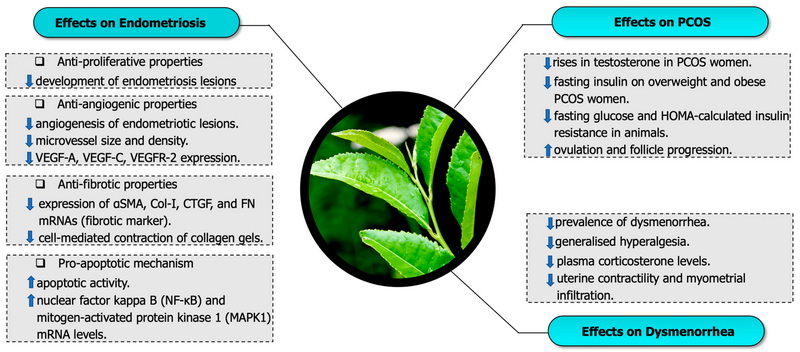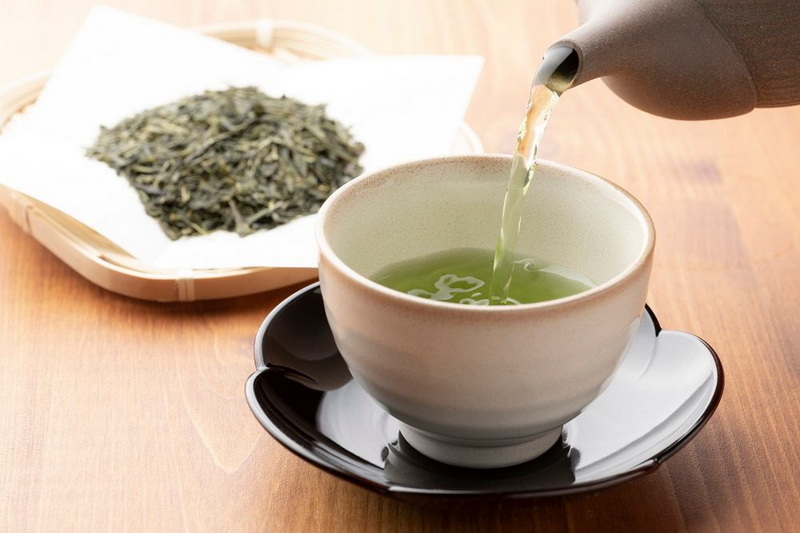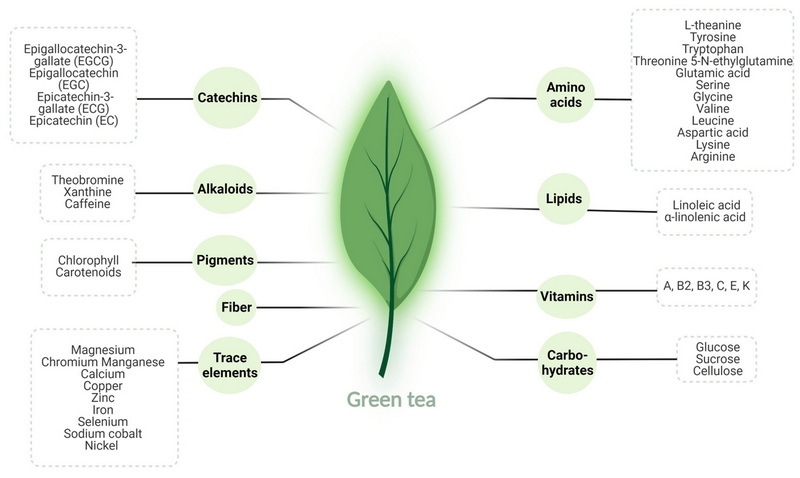Content Menu
● Understanding Green Tea Extract
>> Forms of Green Tea Extract
● Do Green Tea Extract Capsules Expire?
● Factors Affecting Shelf Life
● Signs That Green Tea Extract Capsules Have Gone Bad
● Proper Storage Tips
● Health Benefits of Green Tea Extract
● Potential Side Effects
● Conclusion
● Frequently Asked Questions (FAQ)
>> 1. How long do green tea extract capsules last?
>> 2. Can I take expired green tea extract capsules?
>> 3. What should I look for when buying green tea extract?
>> 4. How should I store my green tea extract capsules?
>> 5. Are there any side effects associated with taking green tea extract?
● Citations:
Green tea extract capsules are a popular supplement known for their numerous health benefits, including antioxidant properties, weight management support, and potential heart health benefits. However, many consumers often wonder about the shelf life and safety of these capsules over time. This article will delve into whether green tea extract capsules go bad, how to store them properly, and what signs to look for to determine their quality.

Understanding Green Tea Extract
Green tea extract is derived from the leaves of the *Camellia sinensis* plant and is known for its high concentration of catechins, particularly epigallocatechin gallate (EGCG). These compounds are responsible for many of the health benefits associated with green tea, including antioxidant effects that can combat oxidative stress in the body.
Forms of Green Tea Extract
Green tea extract is available in various forms:
- Capsules: Convenient and easy to consume.
- Powder: Can be mixed into drinks or smoothies.
- Liquid: Often taken as a tincture or diluted in water.
Each form has its own shelf life and storage requirements.
Do Green Tea Extract Capsules Expire?
Unlike perishable foods, green tea extract capsules do not "expire" in the traditional sense. Instead, they may lose potency over time. Here are some key points regarding their shelf life:
- Best By Date: Most green tea extract products come with a "best by" or "use by" date rather than an expiration date. This indicates when the manufacturer believes the product will be at its peak quality. Consuming them after this date is generally safe but may result in reduced effectiveness.
- Shelf Life: Green tea extract capsules typically have a shelf life of 1 to 2 years when stored correctly. Factors such as storage conditions, packaging, and initial quality can influence how long they remain effective.
Factors Affecting Shelf Life
Several factors can affect the longevity and potency of green tea extract capsules:
- Storage Conditions: Heat, light, and moisture can accelerate degradation. It is best to store capsules in a cool, dry place away from direct sunlight.
- Packaging: Capsules stored in airtight, opaque containers tend to last longer than those exposed to air and light.
- Quality of Ingredients: Higher quality extracts with a higher concentration of active ingredients may retain their potency longer than lower-quality products.

Signs That Green Tea Extract Capsules Have Gone Bad
While green tea extract capsules do not spoil like food, there are signs that indicate they may no longer be effective:
1. Change in Color: If the capsules have changed color significantly from when you first purchased them, this could indicate degradation.
2. Altered Aroma: Fresh green tea extract should have a pleasant aroma. If it smells off or has lost its scent entirely, it may be past its prime.
3. Clumping or Hardening: For powdered forms, clumping or hardening can indicate moisture exposure.
4. Loss of Effectiveness: If you notice a decrease in the expected benefits after regular use, it could suggest that the extract has degraded.
Proper Storage Tips
To maximize the shelf life of green tea extract capsules, consider the following storage tips:
- Cool and Dry Place: Store in a pantry or cupboard away from heat sources.
- Airtight Containers: Ensure that the container is tightly sealed after each use to prevent moisture ingress.
- Avoid Refrigeration for Capsules: While liquid extracts may benefit from refrigeration after opening, capsules should generally be kept at room temperature unless specified otherwise by the manufacturer.
Health Benefits of Green Tea Extract
Green tea extract is associated with several health benefits due to its rich content of antioxidants and other bioactive compounds:
- Weight Management: Studies suggest that green tea extract can aid in weight loss by increasing metabolism and fat oxidation. The catechins in green tea help enhance thermogenesis—the process by which your body burns calories to produce heat[1][2].
- Heart Health: Regular consumption of green tea extract has been linked to improved cardiovascular health. It may help lower cholesterol levels and improve blood circulation[3][4].
- Brain Health: The catechins present in green tea are believed to have neuroprotective effects. They may enhance cognitive function and reduce the risk of neurodegenerative diseases[5][6].
- Antioxidant Properties: Green tea extract is rich in antioxidants that combat oxidative stress and inflammation in the body. This can contribute to overall health and longevity[7][8].
Potential Side Effects
While green tea extract offers numerous health benefits, it is essential to be aware of potential side effects:
- Caffeine Sensitivity: Green tea contains caffeine, which can cause side effects such as insomnia, anxiety, or irritability in sensitive individuals[9][10].
- Liver Health Concerns: High doses of green tea extract have been linked to liver damage in some rare cases. It is crucial to adhere to recommended dosages and consult healthcare professionals if you have existing liver issues[11][12].
- Gastrointestinal Issues: Some individuals may experience nausea or upset stomach when taking green tea extract on an empty stomach[13][14].
Conclusion
In summary, while green tea extract capsules do not go bad in the traditional sense, their potency can diminish over time due to various factors such as storage conditions and exposure to light and moisture. It is essential to store them properly and be mindful of any changes in appearance or effectiveness. If you notice any signs of degradation or if they are past their "best by" date but still show no signs of spoilage, they are likely safe to consume but may not provide the full range of benefits.

Frequently Asked Questions (FAQ)
1. How long do green tea extract capsules last?
Green tea extract capsules typically last 1 to 2 years when stored properly in a cool, dry place away from light.
2. Can I take expired green tea extract capsules?
While expired capsules are generally safe to consume if there are no signs of spoilage (like unusual odor or color), their effectiveness may be reduced.
3. What should I look for when buying green tea extract?
Look for high-quality products with a clear label indicating the concentration of EGCG and other catechins. Choose brands that have undergone third-party testing for purity.
4. How should I store my green tea extract capsules?
Store them in a cool, dry place away from direct sunlight and ensure they are kept in an airtight container.
5. Are there any side effects associated with taking green tea extract?
Some individuals may experience side effects such as headaches or gastrointestinal issues if taken in excess or on an empty stomach. It's best to consult with a healthcare provider before starting any new supplement regimen.
Citations:
[1] https://www.webmd.com/vitamins/ai/ingredientmono-960/green-tea
[2] https://www.chamoods.com/blogs/101/how-to-store-green-tea
[3] https://www.drugs.com/npp/green-tea.html
[4] https://staarlabs.com/blogs/news/green-tea-vs-green-tea-extract
[5] https://www.urmc.rochester.edu/encyclopedia/content?contenttypeid=19&contentid=greenteaextract
[6] https://pmc.ncbi.nlm.nih.gov/articles/PMC6706524/
[7] https://www.canada.ca/en/health-canada/services/food-nutrition/public-involvement-partnerships/notice-modification-list-permitted-supplemental-ingredients-permit-use-green-tea-extract-supplemental-ingredient-foods/document.html
[8] https://magazine.labdoor.com/green-tea-supplements-vs-drinking-green-tea/
[9] https://www.medicalnewstoday.com/articles/269538
[10] https://japanesegreenteaonline.com/blogs/news/green-tea-vs-extract-supplements
[11] https://senchateabar.com/blogs/blog/green-tea-pills
[12] https://www.nowfoods.com/products/supplements/egcg-green-tea-extract-400-mg-veg-capsules
[13] https://examine.com/supplements/green-tea-extract/
[14] https://food.ndtv.com/food-drinks/green-tea-vs-green-tea-extract-which-one-is-better-for-you-2013203
[15] https://www.vumc.org/poison-control/toxicology-question-week/march-12-2021-what-are-adverse-effects-green-tea-extract
[16] https://www.nowfoods.com/products/supplements/green-tea-extract-400-mg-veg-capsules
[17] https://coopercomplete.com/blog/are-green-tea-and-green-tea-supplements-the-same/
[18] https://www.drugs.com/mtm/green-tea.html
[19] https://health.clevelandclinic.org/green-tea-extract-a-better-way-to-boost-energy-or-not
[20] https://www.webmd.com/drugs/2/drug-76714/green-tea-leaf-extract-oral/details
[21] https://tigogreen.de/en/greentea-greentea-extract/
[22] https://www.nccih.nih.gov/health/green-tea
[23] https://www.healthline.com/nutrition/10-benefits-of-green-tea-extract
[24] https://www.ncbi.nlm.nih.gov/books/NBK547925/
[25] https://www.bulknutrients.com.au/products/green-tea-extract-capsules






























